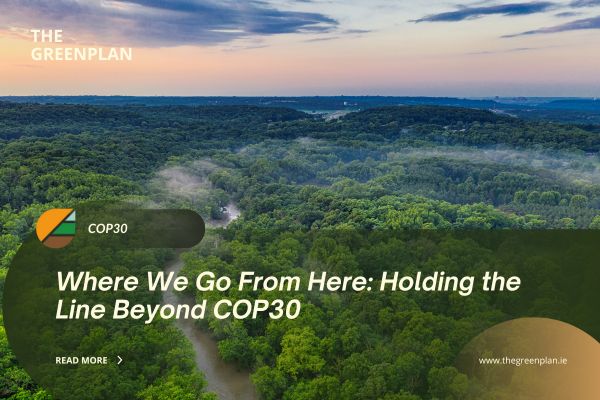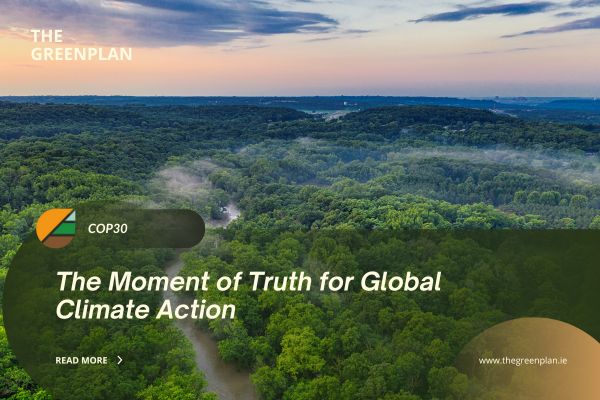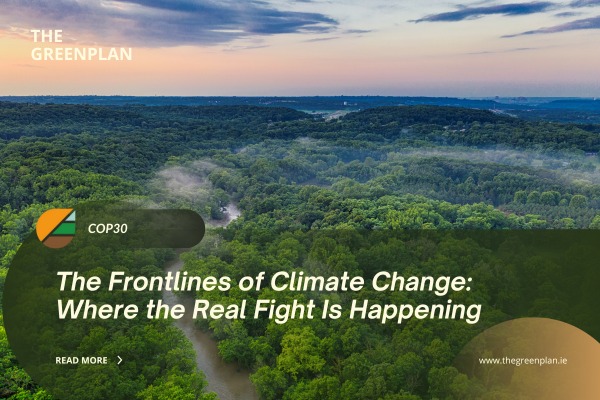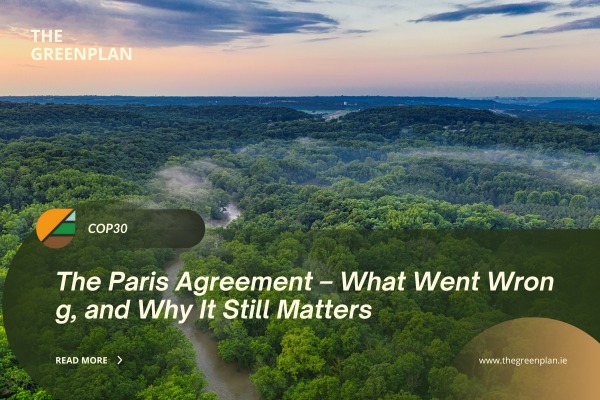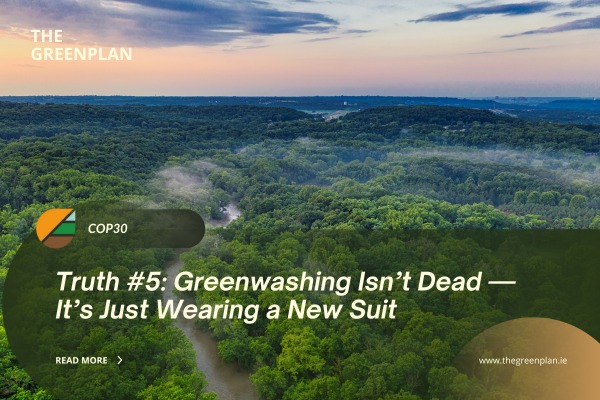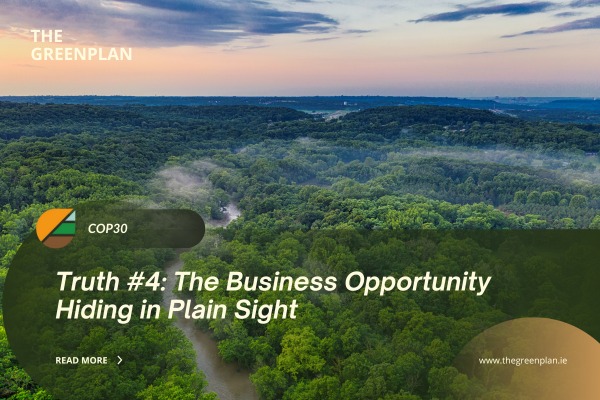In November 2025, the world will turn its attention to the city of Belém, Brazil, for the 30th United Nations Climate Change Conference (COP30). But this will be more than just another summit. Held at the edge of the Amazon rainforest, this conference represents a global inflection point—a final warning, and perhaps a final chance, to realign our climate ambitions with the science, the economics, and the lived realities of billions.
I’ve spent my life translating climate rhetoric into measurable, community-led action. And from that vantage point, I see COP30 as both a test and a launchpad. This is a call for realism, ambition, and practical climate justice.
Why COP30 Matters More Than Ever
We are no longer talking about climate change as a future risk. We are living it.
From catastrophic wildfires in Canada to historic droughts in southern Europe, and record-breaking floods in Africa and Asia, 2024 confirmed what scientists have warned for decades: the climate system is entering unstable territory. And yet, global climate action is off track.
By the numbers:
Only 23 countries have submitted updated Nationally Determined Contributions (NDCs) since COP28.
Fossil fuel subsidies topped $1 trillion in 2024, despite widespread pledges to phase them out.
Emissions remain at record highs, while climate finance to vulnerable nations falls short by billions.
COP30 in Brazil cannot be a celebration of commitments. It must be a reckoning with results.
Either we close the credibility gap, or we lose the public trust, and possibly the planet’s future stability.
Brazil’s Role: Host, Guardian, and Political Powerhouse
The decision to host COP30 in Belém, a gateway to the Amazon, is both symbolic and strategic.
Brazil, under President Luiz Inácio Lula da Silva, has signalled a renewed commitment to protecting the Amazon and restoring its climate leadership. The Amazon rainforest is not just Brazil’s asset, it is a global carbon sink, a biodiversity engine, and a frontline in the battle for ecological justice.
But Brazil’s position is more complex than it appears.
Three dynamics are at play:
- Geo-political leverage:
Brazil leads the G77+China group, giving it influence over global South climate priorities.
- Economic pressure:
Agribusiness and resource extraction continue to drive deforestation and emissions.
- Justice framing:
Brazil champions a climate justice narrative that emphasises fairness, historical emissions, and the need for a just transition for developing nations.
This tension, between ambition and practicality, will define COP30’s tone.
It is also why Belém may become the site of a long-overdue power shift: from the legacy emitters of the Global North to the climate-vulnerable and climate-rich nations of the Global South.
Key Issues on the COP30 Agenda
- Global Stocktake Follow-Through
COP28 produced the first ever Global Stocktake, a reality check confirming the world is not on track to limit warming to 1.5°C. COP30 must now turn that diagnosis into action:
- Strengthening NDCs (with clear pathways and deadlines).
- Pressuring high-emitting nations to update 2030 targets.
- Aligning financial flows with real-world decarbonisation.
- Climate Finance and the $100 Billion+ Pledge
Developing nations continue to call for clear, accessible, and non-debt-based finance.
The $100bn annual pledge made over a decade ago is still not fully delivered.
COP30 must:
- Operationalise the new Loss and Damage Fund.
- Expand adaptation financing.
- Ensure transparency and access for frontline communities.
- Nature-Based Solutions and the Amazon
Expect a surge in discourse around:
- Reforestation and ecosystem restoration.
- Indigenous-led conservation models.
- Protection of natural carbon sinks.
- Just Transition and Climate Justice
As fossil fuels are phased out, millions of jobs must be transitioned fairly.
This includes:
- Training and education schemes.
- Social protection systems.
- Support for regions economically reliant on carbon-intensive industries.
- Accountability Mechanisms
Voluntary pledges are no longer enough. We need:
- Legally binding enforcement tools.
- Global frameworks for transparency and data validation.
- Independent review of emissions reporting.
Where Governments Are Falling Short
There’s an uncomfortable truth many won’t say out loud:
Governments are not structured for urgent transformation.
- Political cycles reward short-term wins, not long-term investments.
- Bureaucracy slows innovation.
- Climate goals are too often siloed within environment departments—rather than embedded across finance, education, trade, and industry.
Even the most ambitious countries struggle with implementation. The gap between targets and tactics is where credibility collapses. This is where businesses, communities, and solution providers like The GreenPlan must step in.
The GreenPlan: From COP Promises to Measurable Action
At its heart, The GreenPlan (TGP) is not just a framework. It is a deployment tool—a practical, evidence-based system to embed climate action into every level of society.
What sets TGP apart:
- Behavioural change is the foundation, not an afterthought.
- Emission reduction is measured, tracked, and certified across seven impact themes.
- Community and Corporate Editions ensure no one is excluded from action.
- ESG, CSR, and SDG integration guarantees alignment with international standards and investor expectations.
TGP is already embedded in multiple national systems, including frontline emergency services, municipal authorities, and corporate sectors. The world needs scalable systems and TGP is a scalable framework system.
A Personal Reflection: The Role of Climate Justice
As someone who has worked for decades in the public realm, often in high-pressure, resource-constrained environments, I’ve seen firsthand how climate vulnerability is not just about geography. It’s about inequality, access, and dignity.
I believe that:
- Climate solutions must work for those without privilege.
- Climate narratives must elevate those who are least responsible, but most affected.
- Real leadership means showing people what’s possible, not just promising it.
Climate justice means we no longer build policies in boardrooms that ignore the lived realities of citizens. It means we build climate systems for all – practical, accountable, and equitable.
The GreenPlan exists to deliver exactly that!
What COP30 Must Deliver: Three Non-Negotiables
If COP30 is to avoid becoming another Bullshit footnote in a list of Bullshit climate conferences, it must achieve three things:
- Close the Action Gap
It’s no longer about ambition, it’s about execution.
The world needs practical tools and transparent data.
The time for voluntary pledges is over.
- Fund the Frontlines
Climate finance must move directly to communities and nations facing immediate risk.
That means direct access, fewer conditions, and genuine co-creation.
- Embed Climate Into Every Department
Sustainability must move out of the margins.
It belongs in education, healthcare, construction, transport, trade, and technology.
This is what The GreenPlan already does and it must become the new standard.
TGPs message to how any Leader or Organisation can get involved in COP30
Whether it’s a CEO, a sustainability officer, or a community champion, here’s how to prepare for the post-COP30 world:
- Don’t wait for government signal, act now.
- Integrate ESG and SDGs into your core business, not just your marketing.
- Seek measurable frameworks like The GreenPlan to prove your impact.
- Champion climate justice by creating access and dignity in your sustainability strategy.
- Move from talk to action, because that’s what the public, investors, and regulators expect.
Final Thought: The Tipping Point Is Now
COP30 is not just another climate summit. It may be the last chance to restore trust in a system that has promised much but delivered very little. It may also be the first real opportunity to shift power, funding, and focus to the people and nations doing the work on the ground.
The GreenPlan is proud to support that mission. And I am proud to lend my voice to a growing movement demanding real climate action, real climate justice, and real global leadership.
The future is not yet lost. But it is no longer guaranteed.


